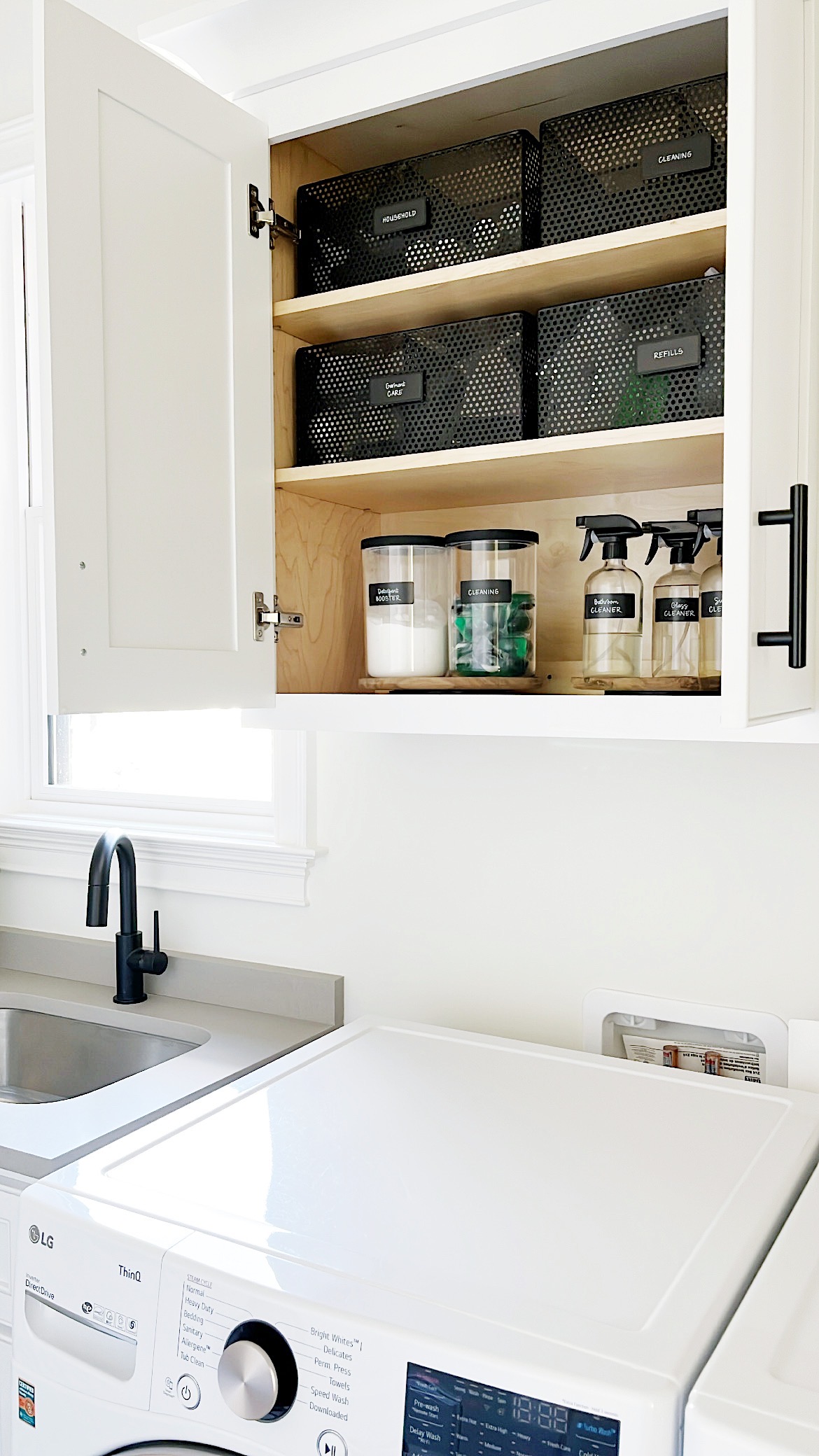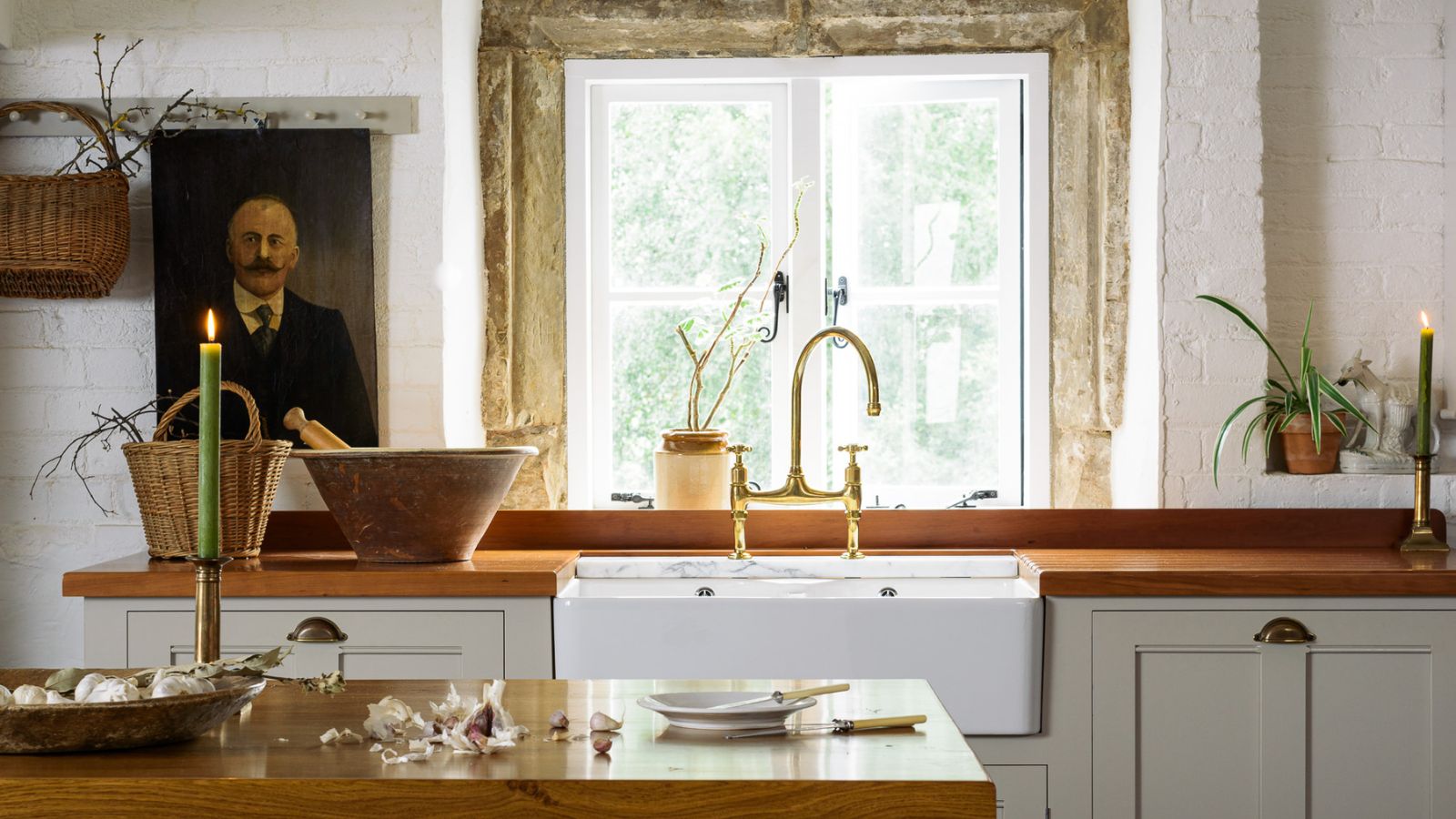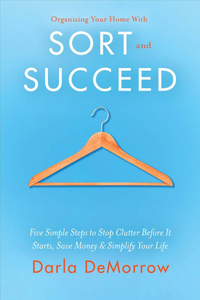How to reduce mental load – 5 home organizing tips to take the weight off
Mental load is often more exhausting than physical exertion – here’s how to ward it off


If you constantly feel mentally exhausted or stressed at home trying to juggle life admin and cleaning, then you may be carrying too big a mental load.
Mental load is the unrecognized mental list of things (big and small) you need to get done to maintain order in your home. It often runs on autopilot in the background of your mind, never letting you have a break. If you try relaxing on the sofa but can't stop thinking about needing to get on top of laundry, take the trash out, and so on, this might be you.
Luckily, there are some great home organizing tips that can help alleviate some of the mental load and help you rest more fully in your downtime.
How to reduce mental load
'When it comes to reducing mental load, the most important thing to do is to talk to someone about all of the things you feel responsible for and see if they can pick up any of the slack,' begins Darla DeMorrow, professional organizer and founder of HeartWork Organizing. Sharing these responsibilities when you live with someone can help both of you to function more smoothly in your home and even prevent disputes:
‘Gender often plays a role in daily activities, but you might find that you and your partner or roommate are happier to shift some of those norms. Maybe you’d happily do all the laundry but prefer not to handle any outside maintenance, or vice versa,’ she shares. ‘The mistake that leads to even more mental load is if one partner just says, make a list and assign me a few things. That creates another task (to make a list) for the already burdened partner, and then the trouble of training, delegating, and possibly quality checking after. Working towards thoughtful conversations about what needs to be accomplished, how, and by whom, is a better outcome.’
With the burden shared, these are some ways you can set your space up to reduce it even further.
Organizing Your Home with SORT and SUCCEED | View on Amazon
Written by Certified Home Organizer Darla DeMorrow, Sort and Succeed helps to coach people through the process of decluttering and stopping cutter before it starts for a consistently organized home.

Darla DeMorrow is a certified professional organizer, productivity expert, home stager, and author. Her company, HeartWork Organizing, based in Wayne, PA, offers seminars and training as well as hands-on work with residential and business clients.
1. Assign tasks to family members

Whether you are trying to keep your home clean or encourage your family to declutter, holding a meeting and helping them to pick out chores to designate as ‘theirs’ will help to take some of the mental burden off of you, begins Amélie Saint-Jacques, professional organizer at Amelie Organizes and certified KonMari® consultant:
‘It's best when everyone is aware of what things need to be done so that the mental load isn't carried by a single person. One way to achieve this is to make a list of all the chores, and then assign them to a specific person and at a given frequency. (For example, the oldest son takes out the trash every Monday and Friday; the mom washes towels every Saturday; the dad vacuums every Saturday.)
‘Another way is to assign a room to each person, and they then become responsible for that room even if they are not the ones who made a mess. This not only spreads out the mental load but also helps teach family members to look for what needs to be done instead of waiting for instructions. (Of course, you need to discuss expectations first, like regarding vacuuming, dusting, etc.)’

Amélie Saint-Jacques is a certified KonMari Consultant and professional organizer based in San Antonio with years of experience in professional tidying.
2. Create a family planner to help write tasks down

One thing the most organized families have in common is a centralized planner where everyone can add events and take note of tasks in a shared space. Darla DeMorrow, a professional organizer suggests that having a written family calendar (or a shared digital calendar that’s easy to access) is essential:
‘Not everyone processes time and information in the same way. It’s much easier to ask a spouse to take part or all of the job of shuttling kids to their activities, for example, if they can see the time commitments required and where the schedule conflicts are piling up.
‘Writing legibly and with enough detail so calendar appointments make sense to all is really important.’
3. Use bins to collect items to go away

If some of your household members require the messy person’s guide to being tidy, it can help to put simple tidying methods in place to encourage them to stop dropping clutter. This will reduce everyone's mental load, says Brenda Scott, professional organizer and owner of Tidy My Space.
‘For example, a bin for items that need to go upstairs should be near the stairs so you'll grab it on your way up,’ she suggests. ‘Put the items away while up there and see if anything needs to go in it that belongs downstairs. Take it with you when you return to the main level. Save your steps and time.’

Brenda Scott is passionate about home organizing, decluttering, and creating a safe home. At Tidy My Space, she helps people to keep their homes tidy when life gets busy. Brenda shares useful tips and gives practical help with sorting and editing her clients' spaces, leading them to feel less stressed and bringing the luxury of time to be spent with family, friends, or on themselves.
4. Find “good enough” hacks

'Perfectionism is often the enemy of good, functional home organizing – especially in a time of Pinterest-perfect homes all over social media. It is far more important that your home works for you and doesn't make you stressed,' reminds Darla DeMorrow, professional organizer. So find some ‘good enough’ hacks that will cut out some of that mental load.
‘“Good enough” is a skill that’s worth learning to reduce mental load. As you evolve through ages and phases, you won’t always have enough time, money, energy, or interest to do things perfectly. But here’s the good news: doing things “good enough” or even poorly on purpose sometimes is rarely fatal.
‘A friend of mine sheepishly admitted that she never put laundry away in closets at her house. Everyone gets dressed and undressed in their big main bathroom, which is also where the washer and dryer are, along with clothes baskets and a big hanging rod. Most of the clothes for all family members live in the laundry/bathroom when they aren’t being worn.
‘She thought she was doing laundry “wrong,” until I confirmed that she was lucky to have stumbled onto a time-saving laundry hack.’
5. Integrate labels into organizing

The simplest way to help reduce your mental load is to label all of your home storage. This will not only make it easier for people to put things away properly, but it will make it easier for everyone to find things without having to come and ask you for help.
‘With a properly labeled household paper file system, for example, any adult can find the passports or child vaccination records when needed,’ points out Darla DeMorrow. ‘With a well-labeled pantry, everyone can see the options for dinner. Bonus points for a family recipe binder.
‘Labeling any storage space can help others know what goes where. This goes for linen closets, under sinks, garage and sports gear, cleaning supplies, mudrooms, and other areas where clutter builds up.
‘The important thing is to have large, clear, visible labels that work with your décor. Labels can be as simple as Sharpie on painter’s tape, more professional-looking die cuts, or even custom personalized products.’
Handheld Label Maker | View on Amazon
This mini Bluetooth label maker is perfect for making custom labels for your home right on your phone. With over 400 positive reviews, it is a great addition to your cleaning cabinet.
FAQs
How can I recover from a stressful mental load?
When trying to reduce your mental load, you should focus on prioritizing self-care. Try to find a hobby or activity that allows you to take a break and distract your mind from the never-ending list of life admin. Remember, if you are ‘relaxing’ in the bath but still thinking of everything that needs to be done, you are not taking a break from the mental load. Consider treating yourself to some spa treatments either at a salon or at home to help switch off your mind, or going out with some friends for a good distraction and a mood boost.
What are the four stages of mental load?
There are four recognized stages of mental load when it comes to household responsibilities: Anticipating needs, identifying options, deciding on an approach, and monitoring the results. An example of this is anticipating that your child’s lunch box will need replacing soon because the handle looks a bit broken, working out when you will be able to get a new one and which to get, deciding on a time to finally go and do this task, and then mankind sure the new item functions and your child likes it. The process of buying a new lunchbox may not sound draining, but working this into an already never-ending list of tasks can add mental stress and cause burnout.
'Struggling with mental load can seem silly – after all, everyone has to organize or clean when feeling overwhelmed sometimes. However, it is important to remember that mental work is still work, takes physical energy, and can cause exhaustion and illness,' urges Darla DeMorrow, professional organizer. ‘Once you know about it, you can ask for or arrange your life to receive help instead of powering through or giving up altogether, which are the two extreme responses I often see.’
Sign up to the Homes & Gardens newsletter
Design expertise in your inbox – from inspiring decorating ideas and beautiful celebrity homes to practical gardening advice and shopping round-ups.

Chiana has been at Homes & Gardens for two years and is our resident 'queen' of non-toxic living. She spends most of her time producing content for the Solved section of the website, helping readers get the most out of their homes through clever decluttering, cleaning, and tidying tips. She was named one of Fixr's top home improvement journalists in 2024.
-
 I’m an HVAC technician, and this is when I turn my AC on each year – plus 5 checks I always do beforehand
I’m an HVAC technician, and this is when I turn my AC on each year – plus 5 checks I always do beforehandSave yourself an AC hassle by running my checks and turning it on before big heat hits
By Josh Mitchell Published
-
 This simple marble hack elevates my budget-friendly wooden kitchen countertops and prevents the dreaded water damage for way less than you’d think
This simple marble hack elevates my budget-friendly wooden kitchen countertops and prevents the dreaded water damage for way less than you’d thinkThis design trick looks expensive, solves a problem, and was the easiest decision I made during my kitchen reno
By Charlotte Olby Published

